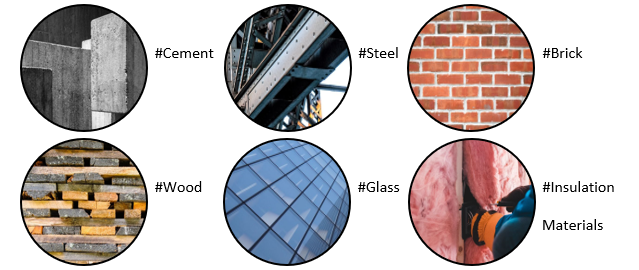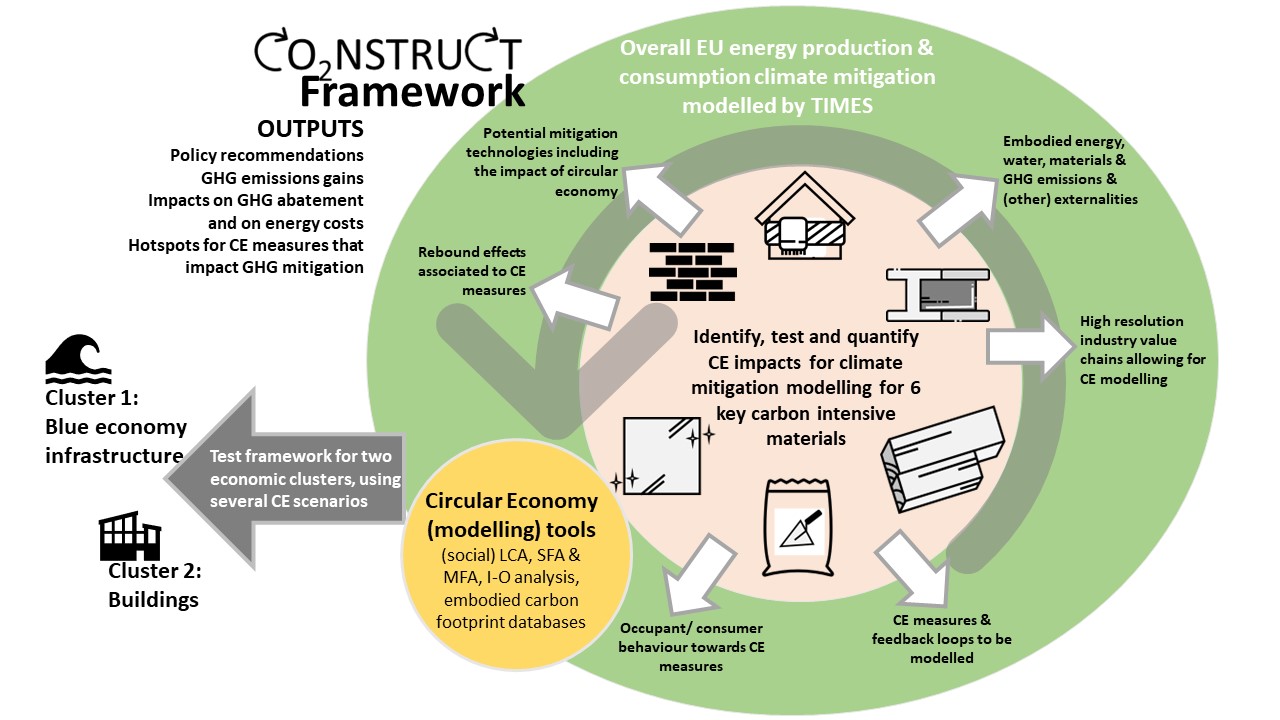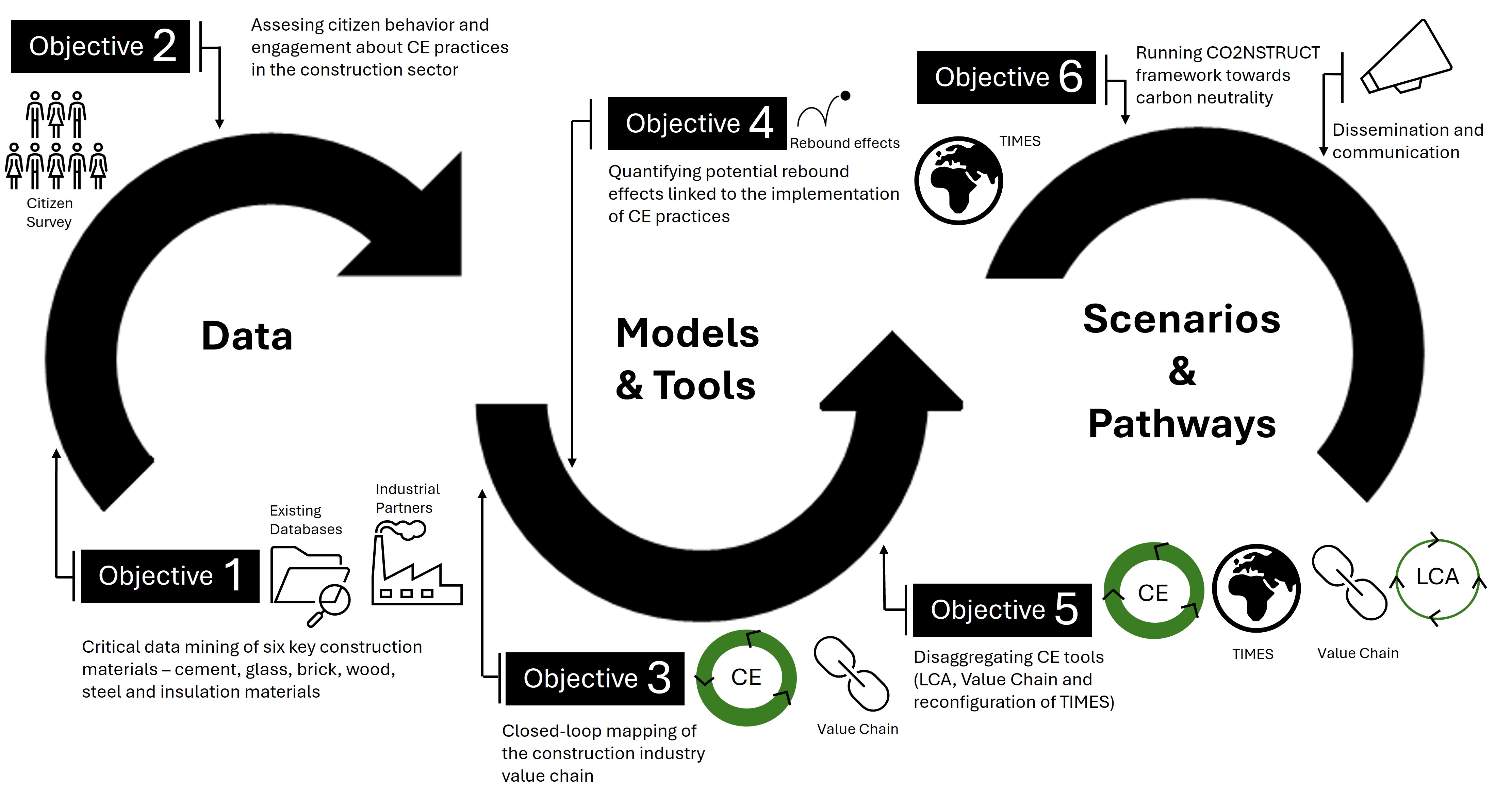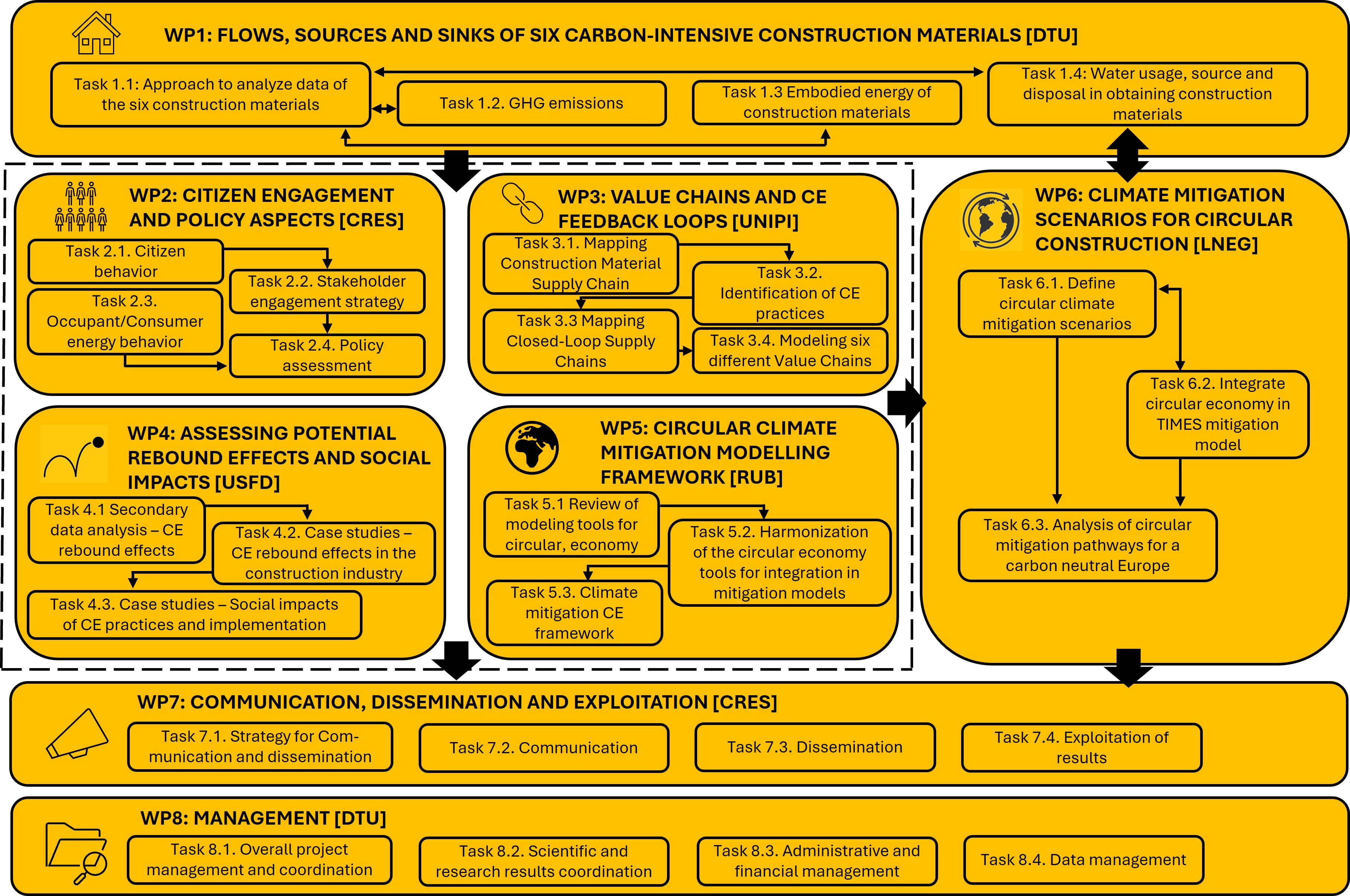Project Facts
- Project start: June 2022
- Project duration: 4 years
- 7 partners
- Funded by the European Union's Horizon Europe research and innovation programme
CO2NSTRUCT is a four-year research project funded by the European Union's Horizon Europe research and innovation programme.
Project Facts
By 2050, the EU aims to be climate-neutral and thus be the first continent to remove as much CO2 as it produces. This is the heart of the European Green Deal and is a legally binding target of the European Climate Law.
Construction products are among the most carbon and energy-intensive in the EU market, and to reduce the construction sector footprint - circular construction in which materials, components, or whole building parts are recycled plays a key role in the transition to more sustainable use of natural resources.
Current tools (e.g., climate mitigation models) that evaluate the environmental impact of construction materials are most suitable for assessing linear patterns of economic activity. These tools do not account for material circularity and only assess the circular economy impacts in terms of potential emission savings. In other words, climate mitigation models are linear and/or do not have sufficient technical detail to capture value chains adequately and feedback loops inherent to circular economy options. Embodied energy, water, and emissions are not considered while modeling climate mitigation pathways.

CO2NSTRUCT project aims to augment models with circular economy measures, boosting their capability to generate and assess circular options. This will contribute to achieving the emission reduction targets set by policymakers and evaluate the circular economy’s impact on greenhouse gas abatement.
Because CE practices are technical in nature, CO2NSTRUCT deems TIMES the ideal proxy model to shift climate mitigation models from linear to circular. The JRC European TIMES Energy System Model been extensively used across Europe to set carbon neutrality goals and pathways and is well-known by several EU and national climate and energy policymakers.
This project will delineate a circular climate mitigation framework to augment TIMES models at the first stage, but that can serve as an imprint for other climate mitigation models.
The CO2NSTRUCT project focuses on six pervasive carbon-intensive materials:

These were selected because of their high GHG emissions in terms of volume produced (like cement, steel, brick, or glass), because of their impact on land use and biodiversity (wood), and due to their importance in terms of their high normalized GHG emission and relevance to energy poverty alleviation (insulation materials).
Extensive data on the impacts of the extraction of raw materials, logistics, transformation, and consumer industries covering the whole life cycle of these materials are necessary.

One of the climate mitigation models is TIMES. The ultimate objective of the TIMES model is to satisfy the demand for energy services at minimum system cost, resource use, and greenhouse gas emissions. The CO2NSTRUCT framework will drive the TIMES model from linear to circular climate mitigation. The augmented model will be used to simulate different pathways to meet the carbon neutrality goals of the EU for near/long term.
Different scenarios are under development with industry and policymakers considering different degrees of circular economy adoption across the six construction materials value chains with associated CE measures. The framework results will be translated into policy recommendations to integrate circular economy into climate, energy, environmental, and economic policies towards carbon neutrality.
By narrowing the CO2NSTRUCT scope, a methodology that involves Data, Models & Tools, Scenarios, & Pathways is prepared with 6 objectives.

The project is organized into eight work packages. Each work package (WP) is under the responsibility of a WP leader, combining partners’ expertise with the work package objective.
